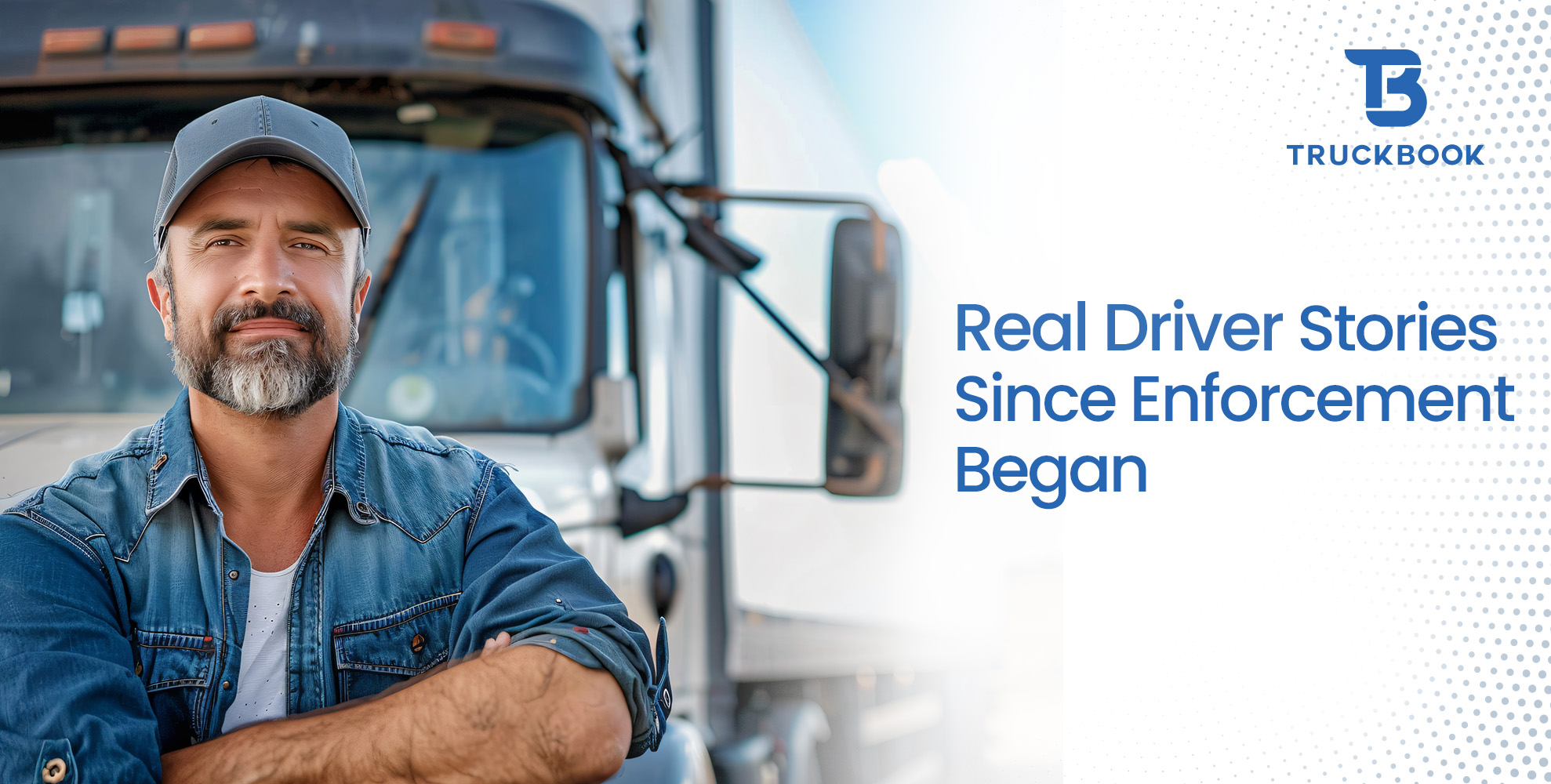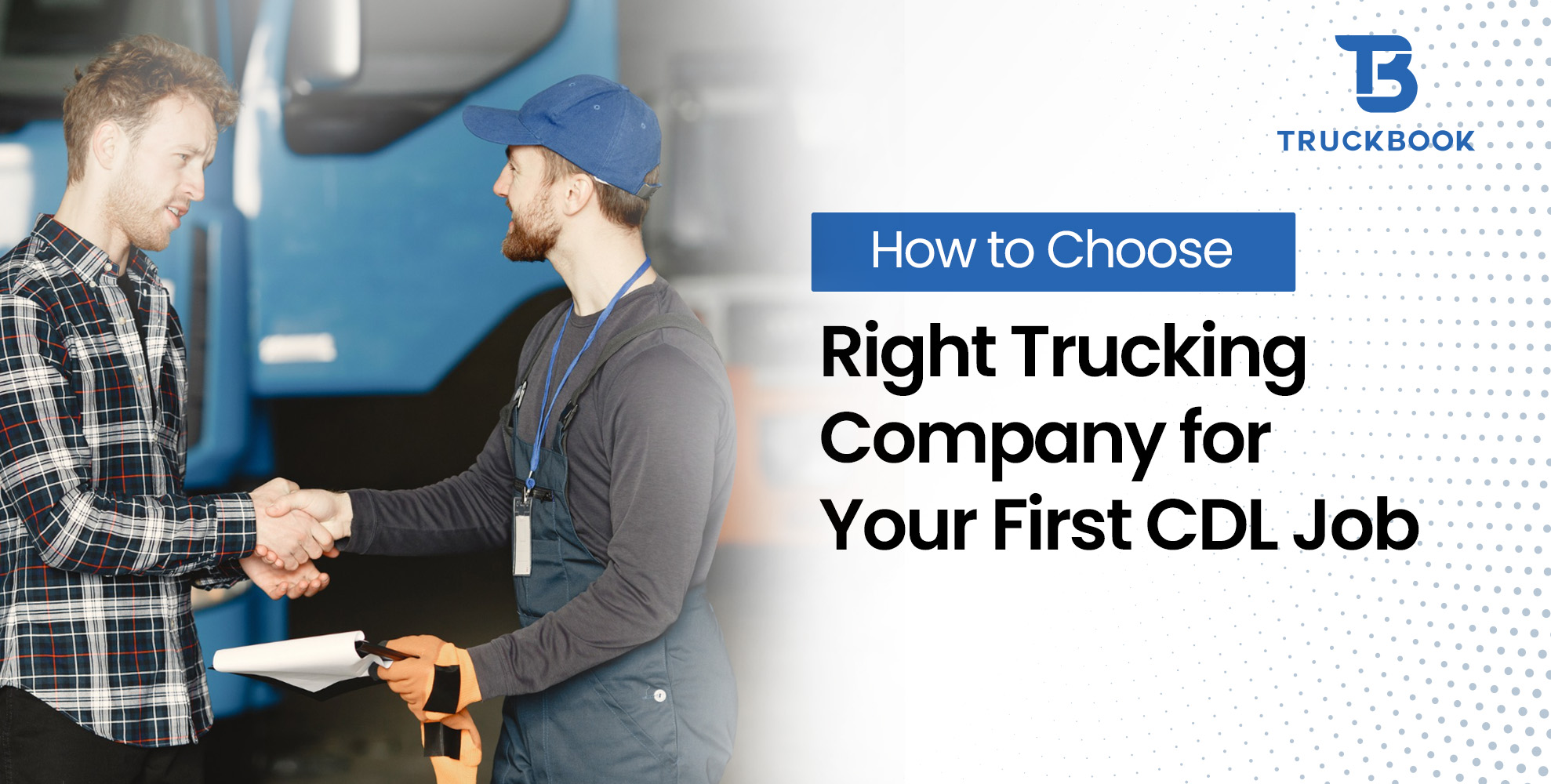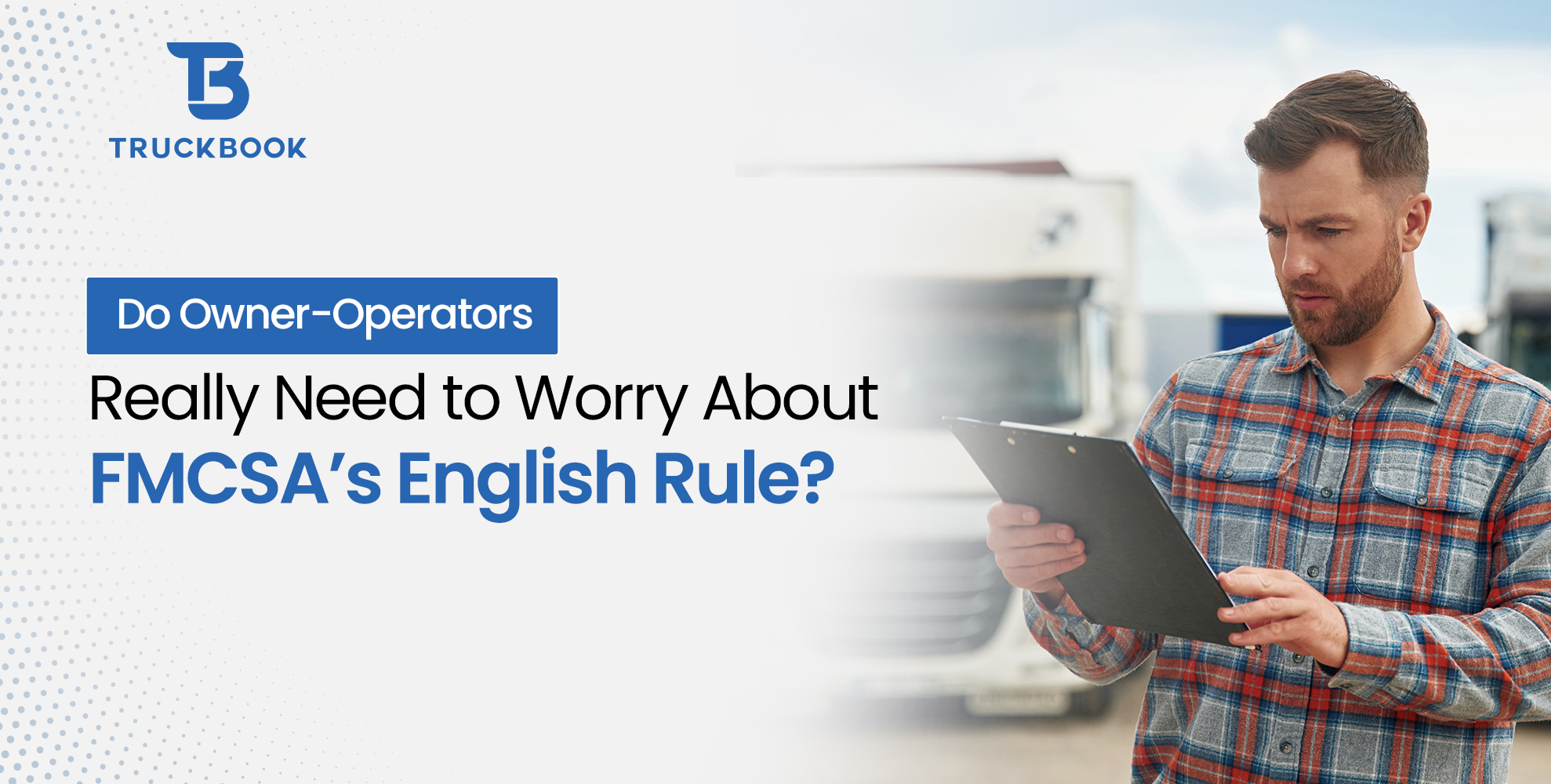Give yourself a pat on the back because if you are here, it means you are managing an independent trucking business on your own which is not a simple task. It takes a great deal of courage and confidence to operate a trucking business.
Are you as an owner operator, busy looking after important aspects of the business like cost-cutting and revenue maximizing most of the time?
That’s only understandable as you are managing your business single-handedly while also driving your truck.
With your busy and often stressful schedule, it’s possible that you might not be able to spare time to think through the insurance coverage options for business. But the good thing is….
Now you need not worry as we have researched extensively on the insurance needs of every owner operator and have covered everything from the types of insurance you must consider, important factors to keep in mind to the best available insurance plans and their benefits.
As an owner operator trying to cut costs and grow their business, the last thing you would wish for yourself is the shocking discovery that your insurance doesn’t cover your loss in the hour of desperate need.
That’s why it is vital to ask yourself the right questions and think through every business aspect while considering insurance options for your trucking business. Let’s start with the types of major insurance coverage you might need.
The Types Of Insurance Coverage An Owner Operator Needs:
The coverages, services you need, and the company that can best understand your specific business requirements are the primary factors that will affect your decision. And there is no one who knows your operation better than you do. So, let’s understand the insurance options for your trucking business, starting from the coverages:
1. Liability Insurance:
This insurance is further divided into different kinds of liabilities: Primary Liability Coverage, Truckers General Liability Coverage, and Physical Damage Coverage. General liability coverage covers the actions of a driver who is operating on someone else’s premises, such as loading docks and truck stops, including mistakes in the delivery of the driver’s load. Things covered under the general liability insurance:
- Bodily injury and property damage liability
- Personal and advertising injury liability
- Medical payments
- Products/completed operations
- Damage to premises
Instead of covering your truck, primary liability coverage covers the damage you may do to others while operating your truck. While physical damage coverage offers coverage for repair or replacement damage to your equipment in case of an accident or theft.
Most owner operators need a maximum of $750,000 in coverage. This number can go higher if you are hauling hazardous materials. In this case, adding physical damage coverage to liability coverage can protect against potholes, weather conditions, and similar other potential damages.
2. Non-Trucking-Liability (NTL) & Bobtail Coverage:
If you are an owner operator, driving under a company’s authority, you will need Non-trucking-liability and Bobtail coverage. NTL covers truck drivers when they use their truck for non-businesses purposes such as a stop at the grocery store or an outing with friends. Bobtail policies also cover drivers who are returning and hauling an empty load while still under dispatch.
For drivers operating under a specific company, it is advisable to do their own research. You should verify the company you are working with. You can also directly ask them to show their CAB report for reaffirmation. You have to protect your own safety record and a company with a poor CAB record is not a good sign to go with.
3. Cargo Coverage:
Cargo coverage protects the goods that you haul. In the event of an accident or theft, you need to know whether the load you’re carrying is covered or not. It covers the risks: stolen goods, wet load, refrigeration breakdown, debris removal, etc. It’s highly recommended to go for a policy with broader coverage instead of the one that has only countable specified perils covered.
Cargo insurance is a common add-on to your trucking insurance, and you can pay for it as an annual premium. Coverage can be anywhere from $50,000 to $250,000. It can also be higher if the freight is high-risk or high value.
The things covered by the cargo insurance are
- Pollution liability and debris removal; costs of cleaning spilled goods and cargo
- Hijackings and theft
- Dishonesty coverage; losses from driver theft
- Water damage, reefer breakdown; in case of truck refrigeration breaks
- Loading and unloading coverage
4. Occupational accident coverage:
It covers injuries that happen during the job. This is similar to workers comp insurance. Occupational accident coverage has less comprehensive coverage than workers comp insurance. It is usually half the price of workers comp insurance.
5. Physical Damage Insurance:
It covers the cost of repairing or replacing your truck if it’s involved in an accident or stolen. It covers events of accidents or collisions, vandalism, theft, or natural disasters. On the other hand, if your truck is beyond repair, your physical damage insurance will replace it. The value of your truck and equipment determines your premium costs in this case.
Optional Insurance Coverage For An Owner Operator:
There are a few other important things you might want to be covered in your insurance policy by paying just a little bit extra without having to pay for the full coverage.
Trailer Interchange:
This covers damage or losses incurred to a trailer you are using but do not own.
Downtime Coverage and Rental Reimbursement:
As it’s clear from its name, this type of insurance coverage covers you for lost income during downtime. It also compensates for the cost of a rental truck or vehicle you are temporarily driving.
Uninsured or Underinsured Motorist Coverage:
This type of insurance protects you when someone collides with your truck and does not have liability coverage to repair your damages.
Medical Payment/ Passenger Accident Coverage:
This covers medical bills if you or a passenger is injured while driving or riding in the tractor. Passenger accident coverage provides insurance protection for guest passengers in your vehicle. This coverage gives you peace of mind when you have someone else in the truck with you.
The Major Factors That Affect The Insurance Cost For An Owner Operator:
Trucking insurance for owner operators varies greatly based on the level of coverage you are seeking. But there are several other factors that directly affect the insurance cost.

1. The Cost Of Owner Operator Insurance:
The cost of owner operator insurance varies widely from business to business. The major factors that determine how much you are going to pay are:
- Business type: working under your own authority or a company’s
- Nature of the goods you get transported
- Your truck and its value
- The location you operate in
- Your specific coverage needs including additional features
If you are an owner operator working under your own authority, the insurance will cost you somewhere around $8,000-$13,000 a year. Here is a break-up on the basis of the coverage type.

2. Experience:
CDL experience plays a huge role in being approved for trucking insurance and pricing. Some insurance companies may ask for 3 years of CDL experience and a CDL license in the state in which you operate. For drivers with less than 3 years of experience, it might be difficult to find an insurance company that specializes in transportation. Underwriters and insurance retailers need evidence of a clean driving record and good business management.
3. Driving Record:
Your driving record is another important factor. A good safety record is vital. Insurance companies will look at inspection records, hours of service violations, driver fitness tests, logbook violations, and truck maintenance records among and so on. They may also look for proper signage and safety features on your vehicle like fog lamps or deer guards.
One of the most rational ways to ensure that you’re getting the right insurance for you at the best possible cost is to get quotes from two or three of the insurers. A final deciding factor in insurance price is a down payment. If you are able to pay the insurance premium in full, insurance companies may discount the total cost at the end.
Best Owner operator Insurance to Consider:
1. State Farm:
It is a reputable Fortune 500 company that is the largest provider of both auto and home insurance policies in the USA. The Illinois-based company offers a comprehensive truck insurance program, including coverage for employees, the goods involved, and commercial automobiles.
Coverage Includes:
State Farm covers the standard commercial trucking insurance options including bodily injury, property damage liability, personal injury, comprehensive, collision, and uninsured/underinsured motorist coverage. It also offers motor truck cargo and transportation coverage. They also have options for less common coverage options like rideshare insurance. All kinds of vehicles are covered, from pickup trucks to equipment like dump trucks and bucket trucks, making it a versatile insurance option.
Pros:
- Offers a wide range of policy options to fit the specific needs of your business
- Known for achieving the highest customer satisfaction among major commercial insurance companies
- It also offers several discount options to help lower the cost of policies
Cons:
- Unlike most other insurers, it does not offer an online quote tool
- Potential customers are required to speak to a local representative to get a quote
2. Progressive Commercial Truck Insurance:
Founded in 1937, Progressive is headquartered in Mayfield, Ohio. As one of the largest commercial vehicle insurers in the U.S., you can best insurance policies from them.
Coverage Includes:
Progressive is well-reputed for commercial trucking insurance for having an immense range of policy options. The company insures owner operators in all 50 states. It offers not only the primary liability insurance required by federal law, but also trucking-specific coverage options such as motor truck cargo, motor truck general liability, non-trucking liability, rental reimbursement with downtime, on-hook towing, and trailer interchange. Thus, it works as a one-stop shop for most commercial trucking insurance needs.
Pros:
- The biggest commercial vehicle insurer in the country, the trust level is high
- Offers one of the largest arrays of truck insurance policies
- Progressive’s Smart Haul® Program provides lucrative discounts if you’re using an electronic logging device
3. The Hartford Commercial Truck Insurance:
Started as a fire insurance company, The Hartford today is a Fortune 500 company with amazingly wide strong in commercial insurance, providing coverage to more than one million small businesses, including commercial truck and auto policies.
Coverage Includes:
In addition to mainstream coverages like liability, property, and uninsured and underinsured motorist coverage, it has various other coverage options useful to commercial trucks which include coverages for motor truck cargo, on-hook towing, trailer interchange, property in transit, livestock transit, and more. The coverages can be customized to particular features of your business.
Pro:
- Received higher customer satisfaction ratings than other truck insurers
- Best for high-risk drivers
Cons:
- Does not offer online quotes
4. Nationwide Commercial Truck Insurance:
Founded in 1926, it is one of the oldest auto insurance companies in the U.S. With more than 32,000 employees in offices around the country, Nationwide makes it easy for customers to find local offices, request quotes, and find coverage that works for them irrespective of where their business is located.
Coverage Includes:
Nationwide’s offerings include auto liability, medical payments, collision, comprehensive insurance, and uninsured and underinsured motorist insurance. The business owners can purchase additional coverage options for their trucking company, including motor truck cargo liability insurance. Insured vehicles include box trucks, pickup trucks, utility trucks, and specific coverages for farm truck insurance.
Pros:
- Best for new drivers
- Competitive discounts and affordable rates for new drivers when compared to other companies
Con:
- Does not offer commercial vehicle coverage for semi-trucks and tractor trailers
5. National Independent Truckers Insurance Company:
Has been in the industry for over 30 years and is known for its fast claims settlement process. NITIC offers coverage for all types of trucks at reasonable prices, including customized options and a variety of discounted rates.
Coverage Includes:
From primary liability and non-trucking insurance to refrigeration breakdown and trailer interchange, NITIC is a one-stop shop for all types of commercial truck insurance options. It provides coverage for a number of vehicles including dump trucks, hotshot trucks, box trucks, tow trucks, and many more. The insurance coverage can be customized as per your business needs.
Pros:
- Wide range of insurance options fitting most truckers’ needs
- Excellent customer satisfaction when it comes to policy administration and handling claims
- One of the most affordable options available in the market
Cons:
- Doesn’t offer online quotes
6. Acuity:
Has been around since 1925, Acuity today has over 100,000 business clients.
Coverage Includes:
Acuity offers trucking insurance suitable for different business sizes, ranging from small owner operators to large trucking companies. Its policy offerings include standard commercial auto insurance coverage, general liability coverage, and cargo insurance. Additional specialized coverage options are deadhead or bobtail coverage, trailer interchange, combined truck, loan/lease gap coverage, rental reimbursement, and tow coverage following a loss.
Pros:
- Wide range of coverage options for trucking businesses
- BBB accredited with an A+ rating and 4.56 out of 5-star customer reviews
7. Sentry:
Has been operating since 1904. They offer specific and specialized insurance products for owner operators. It offers commercial trucking insurance with a variety of coverage options for trucking businesses of all sizes.
Coverage Includes:
Along with standard options such as commercial auto, general liability, physical damage, and motor truck cargo insurance, Sentry offers more specialized coverage options, including non-trucking liability insurance, and cyber liability insurance.
Pros:
- Specialized insurance products with expert and personalized service
- A+ Financial Strength Rating from A.M Best for the last 30 years
- Guidance throughout the process provided by the agent
- Best Personalized Customer Experience
Cons:
- No online quotes
8. OOIDA:
Owner Operator Independent Drivers Association (OOIDA) is an international trade association for professional truck drivers and independent owner operators. This organization advocates for a fair business climate and highway safety for the trucking industry, and it also offers trucking insurance to its members.
Coverage Options:
Coverage offered OOIDA’s trucking insurance for owner operators with authority includes primary liability, general liability, physical damage, motor truck cargo, and passenger accident. For leased owner operators, OOIDA offers non-trucking liability, unladen liability, bobtail liability, physical damage coverage, and passenger accident coverage.
A membership is a must to purchase trucking insurance with OOIDA but a one-year membership costs only $45.
Pros:
- A large variety of coverage options for owner operators and leased owner operators
- Best small businesses and owner operators
Cons:
- Membership-only
Conclusion:
There are even more coverage options that may be available to you, depending on your specific needs. The best way is to make a comparison among all the options after filtering them as per the needs of your trucking business. Speaking with an insurance agent or company about what you can and should include in your policy to give you peace of mind is also advisable to make sure you are settling for the best and most cost-effective insurance option for yourself.








